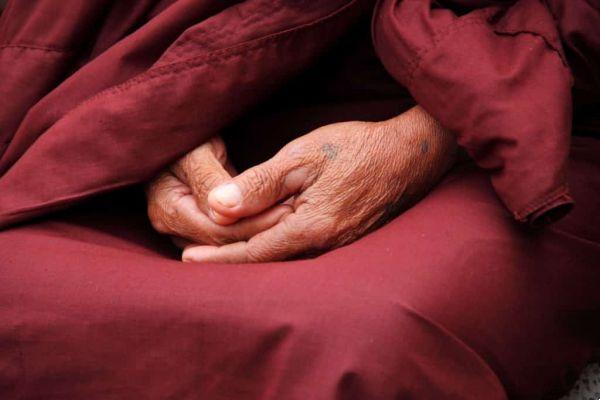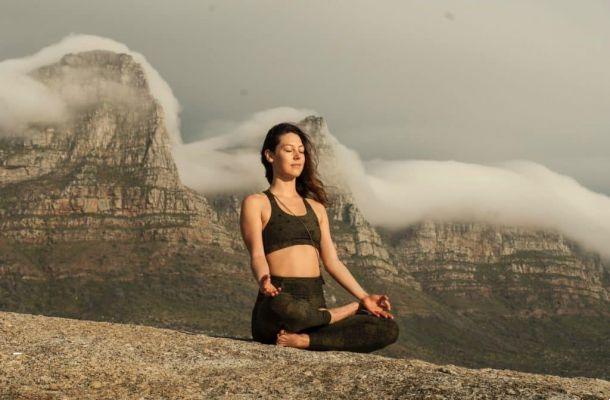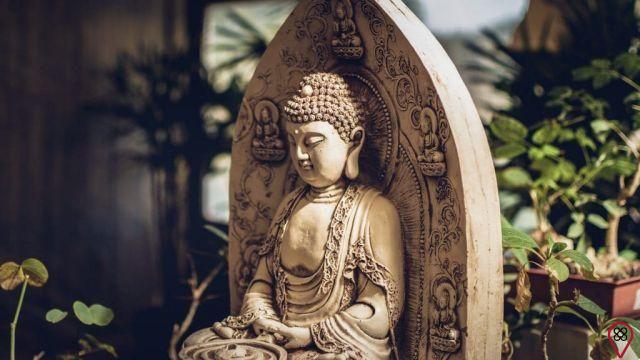Meditation is the activity of internalizing your thinking in order to defocus your mind from what you are used to, with the sights, sounds and sensations of the external world, from day to day. With practice, one seeks greater self-knowledge and control of the body and mind.
The meditator begins to control breathing, body movements and consequently relax and better understand his thoughts, reasoning and subconscious.
There are some aspects of meditation. The practice is ancient and original to India. It may be associated with religions such as Buddhism, which had its practice started by the figure of Shakyamuni Buddha, who disseminated meditation as a philosophy and activity linked to religion.
Currently, it is not necessarily spiritual or linked to religiosity, it is also common as a simple practice of self-knowledge and relaxation, even as an alternative medical treatment.
Buddhist meditation precepts
Buddhist meditation seeks to attain the state known as Nirvana. Nirvana is considered a state of prolonged peace in which the awareness of the body is intense and lasting. Buddhist philosophy still associates the practice with liberation and peace for the human being.
Practitioners of this aspect of meditation take it as a way of life more than just a moment of peace.

Buddhism dictates meditation with methodologies such as:
Vipassana:
The Vipassana method is meditation focused on realistic awareness, that is, its main objective is to free the human being from the accustomed and deluded views of the common routine. The development of this type of meditation allows the individual to have a more realistic and enlightened notion about human nature and behavior.
Its practice includes detachment from material things and people, with a deeper knowledge of living and experience.
Smatha:
The Smatha stream of meditation also involves moving away from common day-to-day distractions in favor of greater concentration on the self. Sensation control is developed with a focus on strengthening compassion and eliminating bad feelings towards others.
Buddhist practice
The practice itself involves performing positions like the one called the lotus. In this position, the person should remain seated with legs crossed, spine erect and shoulders back. The muscles should be relaxed, the eyes preferably closed and the hands facing upwards resting on the knees.
During meditation, Breathing is one of the most important factors for internalization to be effective. The flow of energies depends on regulated and controlled breathing so that the farms are balanced.

For this, before meditation, practitioners do an initial sequence so that the breath gets into a proper rhythm. It works as follows:
– Inhale (pull in air) while the right hand covers the left nostril. Then exhale (release the air) stretching the fingers of the left hand that is on the knee.
– This sequence must be repeated with the change of hands. That is, the next inhalation will be through the left nostril with the left hand covering the other nostril, while the exhalation will be done with the fingers of the other hand being stretched.
This procedure works as an energy cleanse, eliminating everything that is bad from within the body.
The proper place to practice should be in silence and peace. Meditation can be done on the floor or on wooden bases, preferably on a pillow.
Benefits of Buddhist Meditation
Meditation has no contraindications. As said, it is a relaxation practice that can be done by anyone, just the willingness and performance to take a few minutes out of your day to get to know yourself better.
You may also like
- Buddhist meditation heart
- noble silence
- Vipassana Meditation
- The different types of meditation
- Buddhist phrases that can change your outlook on life
Those who choose to insert meditation into their routine only see benefits.
Taking a moment to look at yourself and clarify your views, getting rid of thoughts rooted in what we live in the “external world” causes stress, anxiety and lack of control to be reduced, bringing only more self-confidence, self-esteem and well-being. .
It's always time to start. Try to start meditating, start slowly, the practices don't have to be long. Over time it will become a pleasurable retreat and a customary, good activity.

























